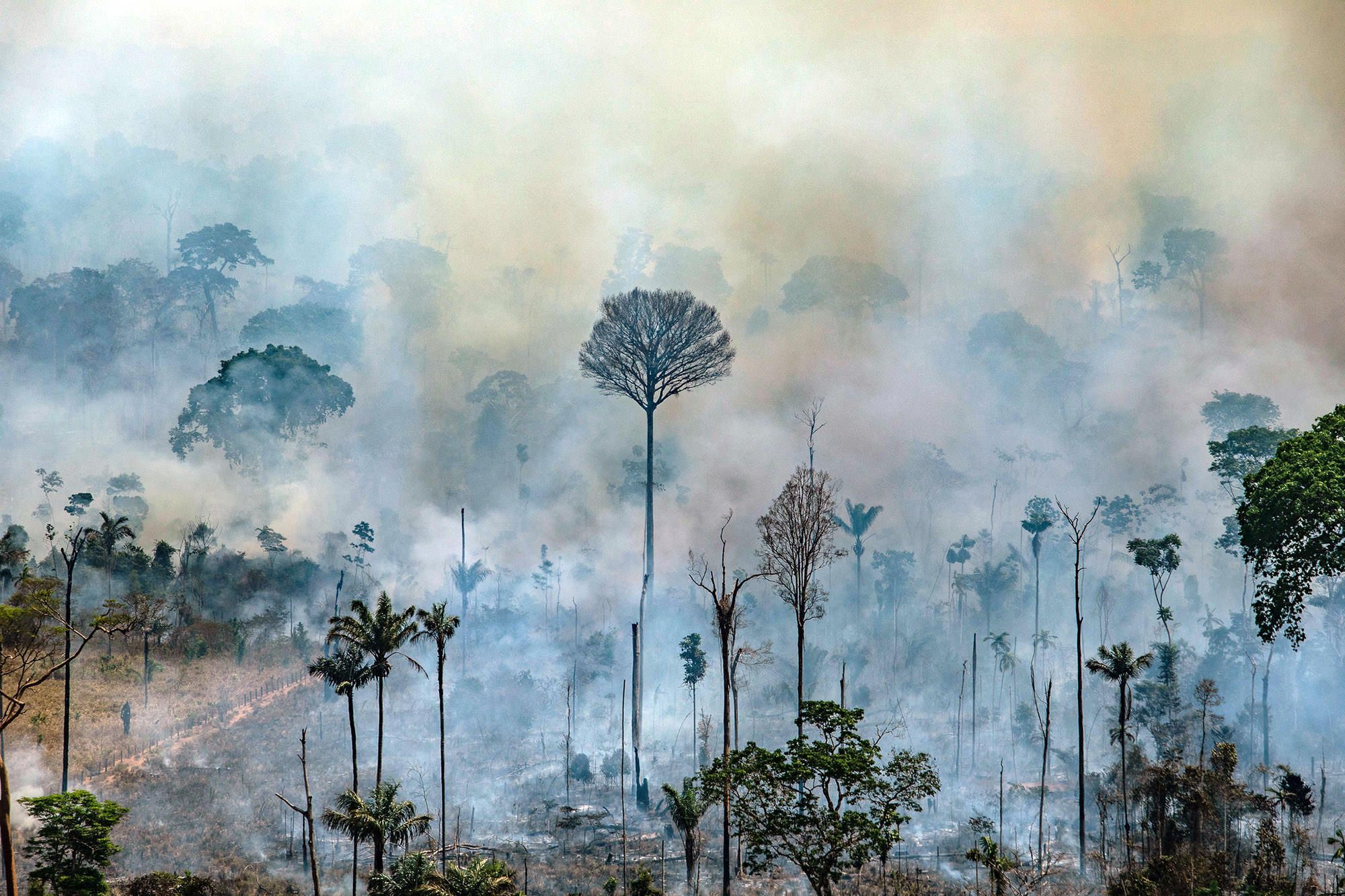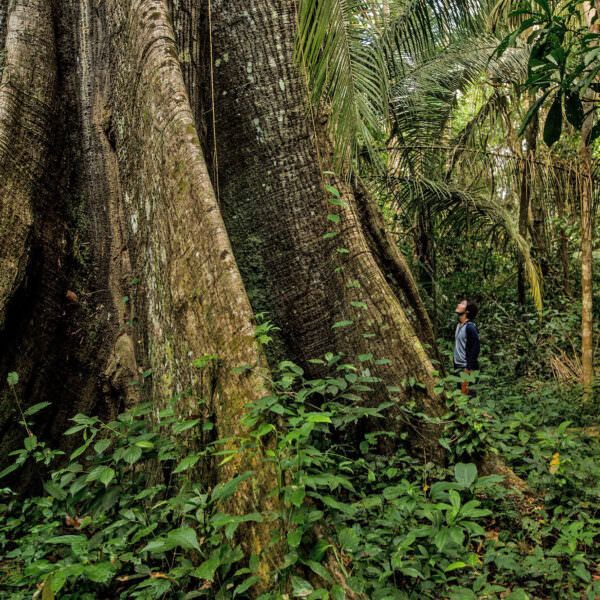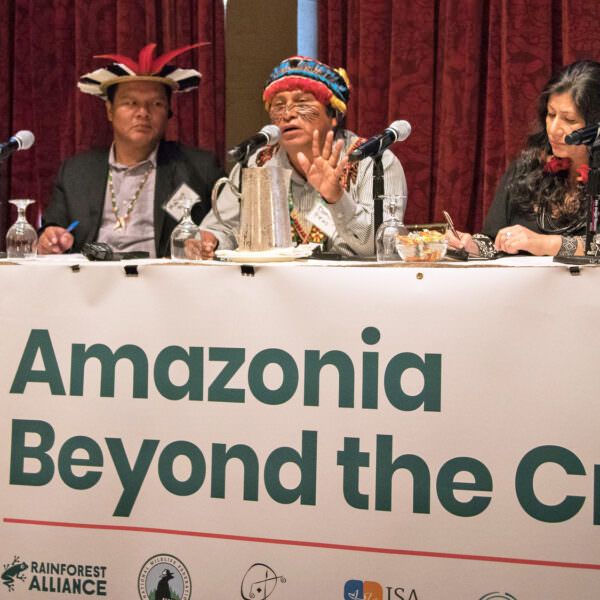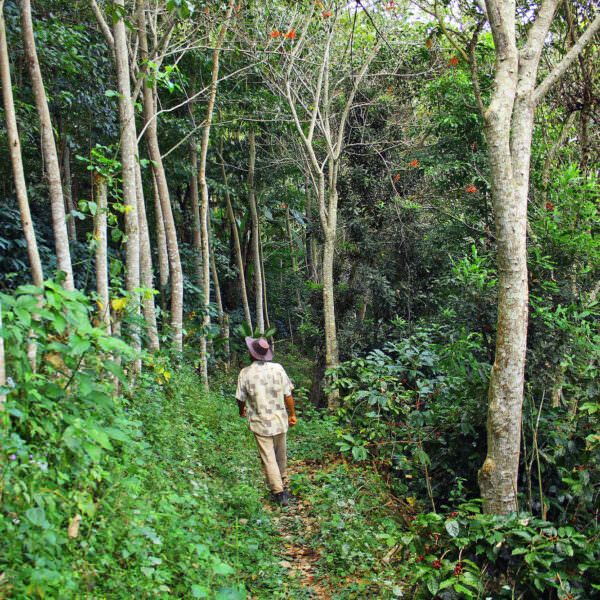The Rainforest Alliance's Work in Peru
Peru: Where indigenous knowledge, climate science, and global markets meet.
Home / Regions / South America / Page 4
Spanning nine South American countries and 7 million sq km (2.7 million square miles), the Amazon is the world’s largest forest and is home to more than 120 indigenous groups and one in 10 known species. One-fifth of all freshwater on the planet originates in the Amazon Basin. Unparalleled in its biodiversity, the Amazon is also critical to global climate stability.

Humans have razed some 20 percent of the Amazon rainforest over the last 40 years alone, and an additional 20 percent is at risk of being destroyed—a potentially catastrophic loss that would cause this vital ecosystem to unravel. Read our response to the forest fire crisis in the Amazon.
The most important impact of our work in high-risk regions of the Amazon—self-determination—is not quantifiable. However, we continually gauge the success of our approach by measuring both ecosystem health and the economic and social well-being of our partner communities.
![]()
in Brazil nuts exported from Madre de Dios, Peru
After working with the Rainforest Alliance for four years, communities in the Madre de Dios region of the Peruvian Amazon exported more than 4,000 metric tons of shelled Brazil nuts, representing a value of nearly US $31 million. Read the study
![]()
under sustainable management in South America
We’re working with forest communities, farmers, governments, and companies to conserve the Amazon Basin and protect its precious biodiversity. Together with our partners, we’ve brought 18 million acres (7.3 million hectares) under sustainable management.
This number includes Rainforest Alliance Certified agricultural land and FSC certified forest land, including land certified by our Brazilian partner, Imaflora. Data accurate as of March 21, 2018.
Stopping deforestation in the Amazon requires bold, multi-faceted strategies that center indigenous forest communities and support their self-determination. This approach characterizes our work in the Amazon, where we work with a wide range of communities and partners to cultivate a sustainable forest economy.

Peru: Where indigenous knowledge, climate science, and global markets meet.

Together with our allies, we have drafted a call to action to save the world’s largest and most important rainforest.

A family transformed their coffee farm into a resilient landscape—and improved their income.

The Rainforest Alliance has authorized the Exception Policy on the Living Wage Matrix in Ecuador, since it considers that the requirements of the Ecuadorian Legislation and the procedures to comply with the Living Wage exceed the requirements indicated in the Sustainable Agriculture Standard for farms and Chain Supply, therefore: a. It is authorized that Annex […]

Working across Latin America’s most significant natural landscapes—from the South American Amazon rainforest to the Mayan jungle which extends through Guatemala, Mexico, and Belize—the Rainforest Alliance has a permanent presence in Latin America, with a growing technical and administrative team that includes more than 150 staff members based in the region. Learn more about how […]

Through research and expert consultation, the Rainforest Alliance (as part of the JDE Common Grounds program) develops Origin Issue Assessment (OIA) that identify and examine significant risks in key coffee regions. The Peru 2021 OIA pinpointed the following as significant risks: protected areas, forest and high conservation areas, income diversification, and climate smart agriculture. In […]

As part of the JDE Common Grounds program, the Rainforest Alliance provides Origin Issue Assessments (OIAs) that identify critical economic, social, and environmental risks in sourcing countries. This OIA points to the following as critical risks for the Colombian coffee sector: climate smart agriculture, integrated pest management, child labor, and income diversification. Coffee production in […]

As part of the JDE Common Grounds program, the Rainforest Alliance conducted research to identify the top risks in the Brazilian coffee sector. This 2020 Brazil Origin Issue Assessment (OIA) identifies the following as top risks in the country’s coffee sector: agrochemical handling, banned pesticides, gender equality, and accommodation for workers. In Brazil, many coffee […]

Tropical forests in the South American Amazon provide critical ecosystem services, such as timber products, nutrient dense fruits and nuts, medicinal plants, and other benefits resulting from their abundant biodiversity. But large portions of forestland are being razed to harvest the agricultural products that global markets demand, such as coffee, cocoa, palm-oil, and tropical fruits. […]